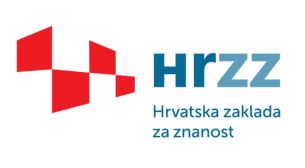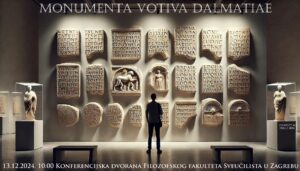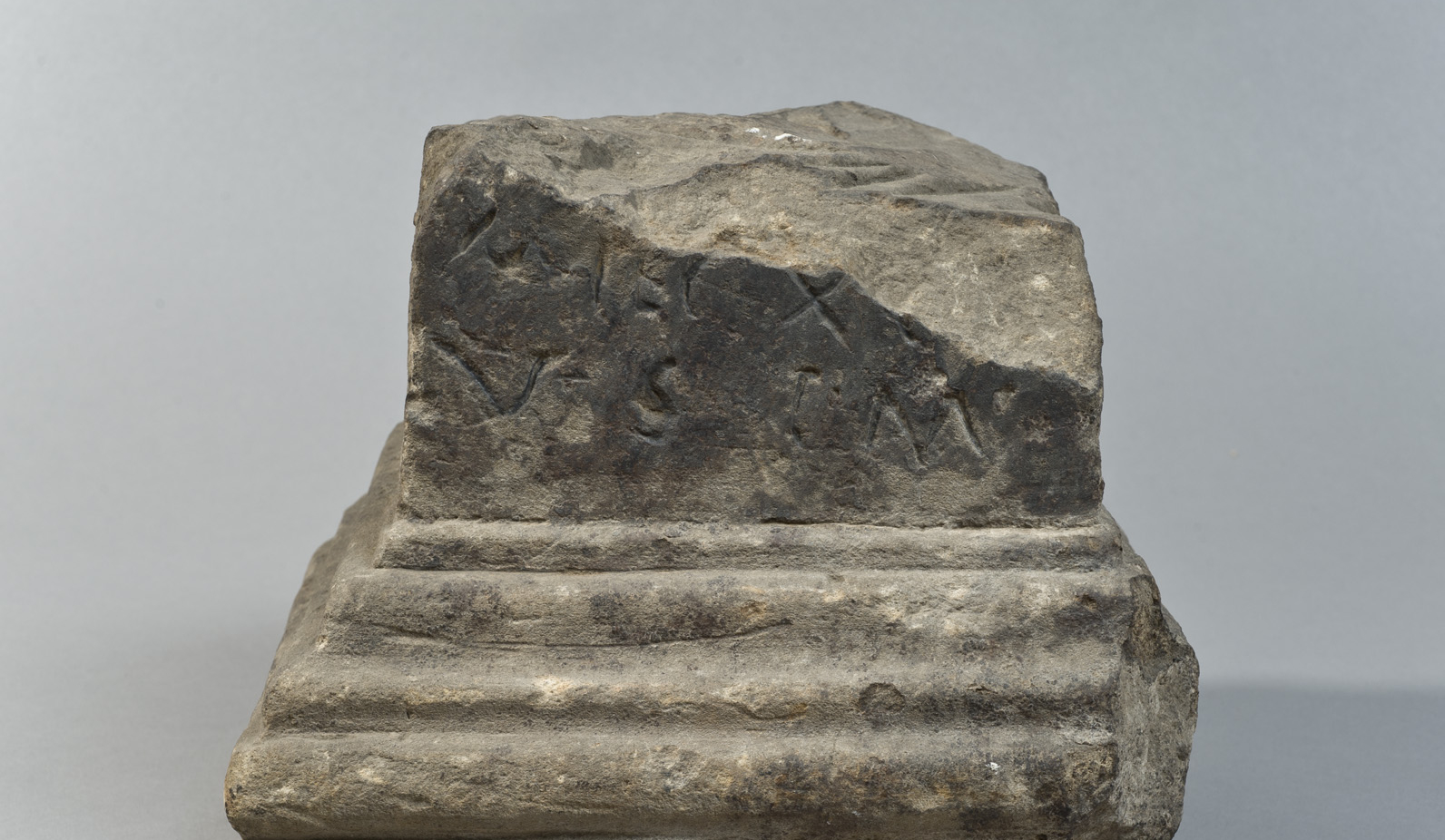Among Gods and Men / The Cults and the Population of Roman Dalmatia According to the Votive Inscriptions

HRZZ IP-2020-02-7214
Project duration: February 1, 2021 – January, 31 2025
Project leader: Ph.D Ljubica Perinić

The Division of Archaeology of the Institute for Historical and Social Sciences in Zagreb, Croatian Academy of Sciences and Arts and the Department of History, Faculty of Humanities and Social Sciences University of Zagreb, invite you to attend the roundtable Monumenta votiva Dalmatiae, which is being held as part of the Among Gods and Men, The Cults and the Population of Roman Dalmatia According to the Votive Inscriptions (AGM, HRZZ IP-2020-02-7214). The roundtable will feature members of the project research group and a guest lecturer from the Hungarian National Museum.
GUEST LECTURER:
Ádám Szabo, Religious formulas and the religious act behind them – Pannonian examples of the dedication and of the votum (Magyar Nemzeti Múzeum)
MEMBERS OF THE AGM PROJECT RESEARCH GROUP:
Alka Domić-Kunić, Reflections of Bato’s uprising in Rome (Croatian Academy of Sciences and Arts, Department of Historical and Social Sciences in Zagreb, Division of Archaeology)
Amra Šačić Beća, The origin of the province of Dalmatia and the issue of northern border (University of Sarajevo, the Faculty of Philosophy Department of History, Antiquity, Bosnia and Herzegovina)
Saimir Shpuza. The Southern border of the province of Dalmatia. An essay on geographical history and archaeology (Institute of Archeology, Tirana, Albania)
Ljubica Perinić, The concept(ion) of religion and cults in Dalmatia (Croatian Academy of Sciences and Arts, Department of Historical and Social Sciences in Zagreb, Division of Archaeology)
Kornelija Giunio, Women and cults (Archaeological Museum, Zadar)
Inga Vilogorac Brčić, Followers of “Oriental” cults in the Roman province of Dalmatia (University of Zagreb, Faculty of Humanities and Social Sciences, Department of History)
Tomislav Kiš, Shaping the Sacred: Sculptural Depictions of the Divine in the Roman Province of Dalmatia (PhD candidate)
Dino Demicheli, Recent finds of votive inscriptions in ager Salonitanus (University of Zagreb, Faculty of Humanities and Social Sciences, Department of Archaeology)
Ivan Radman-Livaja, Military worshippers and patterns: are there any? (Archaeological Museum in Zagreb)
Danijel Džino, Theoretical approaches to study of Roman cults in Dalmatia (Macquarie University, Sydney, Australia)
Nino Švonja, Tri neobjavljena spomenika iz Arheološkog muzeja u Splitu: dokumentacijska problematika (Archaeological Museum, Split)
Among Gods and Men
The Cults and the Population of Roman Dalmatia
According to the Votive Inscriptions
So far, the Roman religion in the province of Dalmatia has never been studied comprehensively. Discussions of different cults were mainly focused either on limited geographical areas or on individual aspects of this complex phenomenon. In most cases they included iconographic issues, less so onomastic features of worshipers, and very rarely a broader social background, while epigraphic analyzes were conducted occasionally, but also never comprehensively.

Photo / Igor Krajcar
Despite the relatively large number of relevant publications, thus gathered knowledge was never systematized. As a result, the researchers face difficulties in using scattered data which are not always easily available. The most important contribution of the AGM project research will be in a holistic approach to the study of all votive inscriptions, with figural depictions without inscription as an auxiliary but necessary tool, and with a focus on the nature of both gods and worshipers. Such an approach will result in a more complete representation of the development and spread of the cults in the province of Dalmatia. The main goal of the AGM research is a thorough review/revision of the votive inscriptions and figural representations of the deities and their systematization, which will result in extensive insight into social aspects of religious beliefs, traditions, practices, and their combined impact on the evolution of cultural identities.
The research envisaged by the AGM project includes two scientific fields in its conceptual framework and methodology – ancient history and ancient archaeology. Through a critical synthesis of existing data with those obtained through this project, our knowledge of different disciplines will be enriched (religion, prosopography, history).
The ancient religion in the Roman province of Dalmatia will be approached as a social and changing category created with the aim of meeting spiritual needs, but also with the aim of possibly expressing social affiliation or status. We will try to establish whether being a worshipper or belonging to a particular cult served, among other things, to regulate social relations, such as those of power or gender. Finally, religion is also a part of the political and ideological domain. Specifically, the project research offers an insight into the role of religion in shaping identity and its functions in intercultural contact, integration, social inclusion and/or exclusion within society. In this sense, religion is an unavoidable interface in the cultural contact between the indigenous population, the new (non) Roman citizens, but also different cultures of ancient times. This will enable the inclusion of the project’s results into the topics of wider relevance, such as intercultural interaction, gender relations and social roles, personal and group identity, and issues of social inclusion and/or exclusion in the past. The planned results will therefore have the potential to become a reference work for future studies of this topic not only for Dalmatia but in general.